June 18, 2025 | 13:24 GMT +7
June 18, 2025 | 13:24 GMT +7
Hotline: 0913.378.918
June 18, 2025 | 13:24 GMT +7
Hotline: 0913.378.918
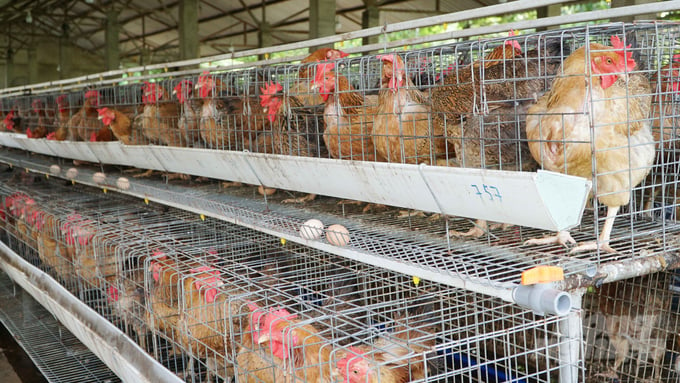
As livestock land funds become increasingly scarce, animals are being kept in space below the minimum level, gradually being stripped of some of their inherent instincts. Photo: Le Binh.
Our country's livestock industry has accomplished remarkable growth, particularly in pig and poultry rearing. During the first half of 2023, total pork production reached approximately 2.3 million tons, a 6.5% increase over the same period in 2022. The production of poultry flesh surpassed 1 million tons, an increase of nearly 5%, and egg production eclipsed 9 billion units, an increase of more than 4%.
As the livestock industry develops, the high livestock density has resulted in an increasingly impoverished living environment for animals, and livestock caretakers appear to have forgotten the animals' inherent instincts.
Animal welfare is defined as treating animals well so that they are in the best physical and mental condition possible, averting unnecessary suffering, regardless of whether the animals are raised for sustenance, as production tools, as pets, or as captive wildlife. Animals can express their fundamental inclinations, such as running, leaping, playing, and displaying their individual emotions, in livestock enclosures.
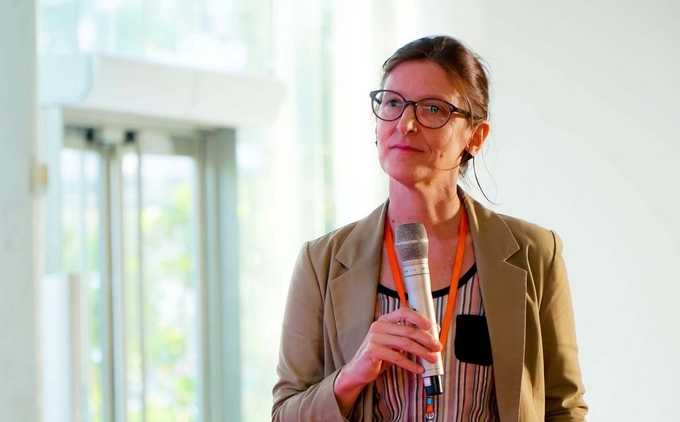
Dr. Kate Blaszak: "Animal welfare will be a mandatory regulation in livestock farming, this will help Vietnam's livestock industry become sustainable and gain more potential export markets." Photo: Le Binh.
Dr. Kate Blaszak, an expert from Humane Society International (HSI), believes that in agricultural nations such as Vietnam, animal welfare plays a crucial role in enhancing the quality of livestock husbandry and has a positive effect on food security.
Regarding animal welfare, it appears that we have only focused on treating pets and conserving fauna. Dr. Kate Blaszak wishes that farm animals raised for human sustenance, such as poultry, ducks, pigs, goats, livestock, buffalo, and horses, receive more attention.
In numerous nations across the globe, animal welfare laws are codified and strictly enforced. The concept of animal welfare first appeared in the United States in 1976, while China incorporated it into livestock laws in 1998, Europe in 2007, and South Korea in 2014. In Vietnam, animal welfare was incorporated into the Veterinary Law of 2015 and the Livestock Law of 2018.
"Despite explicit regulations in the law, livestock producers in our country continue to disregard animal welfare. Very few livestock facilities currently observe fundamental animal rights, including feeding, lodging, and entertainment, as well as transport to slaughterhouses. Dr. Nguyen Duc Trong, vice chairman of the Association of Farms and Agricultural Businesses in Vietnam, stated that guidance and assistance may be required to help livestock keepers comprehend the benefits of excellent animal treatment prior to this skill becoming more pervasive.
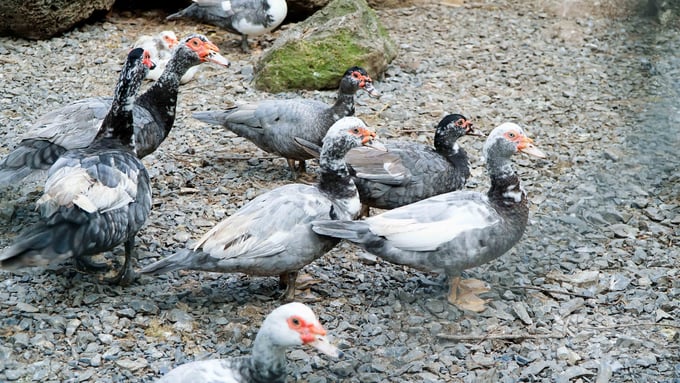
Animals raised in a standard environment and treated well also help prevent many diseases and limit the use of antibiotics. Photo: Le Binh.
Ms. Tham Thi Hong Phuong, National Director of Humane Society International (HSI) Vietnam, echoed this sentiment, stating that even livestock producers have too much to do to ensure animal welfare. However, when agricultural products face intense competition, animal welfare is viewed as a key to unlocking numerous opportunities.
Dr. Kate Blaszak, an HSI expert, shares a photograph of a young man scrutinizing information about pork in a supermarket before determining whether to purchase it as evidence for her animal welfare opinion. This image is straightforward, but it will soon become popular among savvy consumers. This practice is already prevalent in Europe.
"At some point, we will no longer have to worry about the origin of livestock and poultry because it will be a mandatory criterion. Dr. Kate Blaszak stated that intelligent consumers will transfer their attention to whether animals are treated properly, transported to humane slaughterhouses, etc.
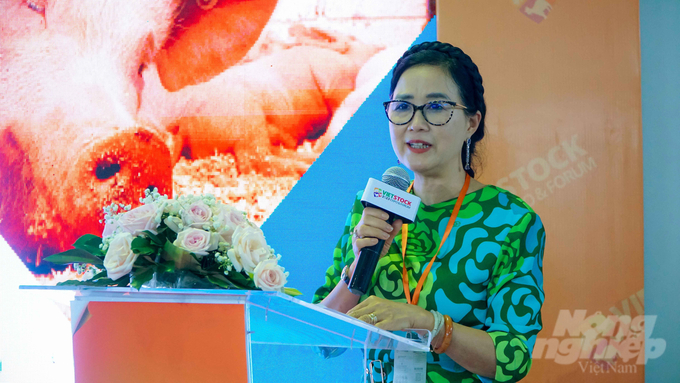
Dr. Ha Thuy Hanh, Vice President of the Vietnam Animal Protection Association. Photo: Le Binh.
It must be acknowledged that an increasing number of livestock facilities in Vietnam are investing effectively in animal living conditions. However, a spacious and spotless environment alone is not sufficient; we must provide tools for animals to stimulate natural behaviors such as pigs rooting and poultry pecking.
According to Dr. Ha Thuy Hanh, vice president of the Vietnam Animal Welfare Association, modern animal husbandry is transitioning toward more ethical and civilized practices. In addition to the economic benefits for livestock custodians, consumers' interests, environmental protection, and animal welfare should receive the consideration they merit.
In addition, to specify the Ministry of Agriculture and Rural Development's export strategy for livestock products, it is essential to assure compliance with international biological safety standards, which include animal welfare considerations.
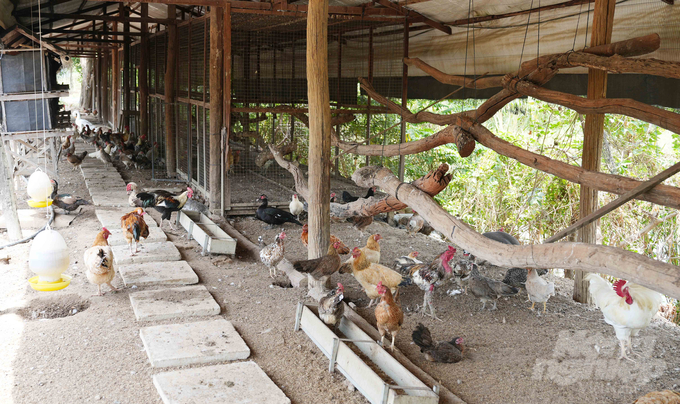
In addition to a biosafety breeding environment, the poultry flock at Nhat Thong Company has spacious space and perches to exercise their natural instincts. Photo: Le Binh.
"If the livestock industry wants to further develop and integrate with the world, it is essential to incorporate animal welfare into training and research programs and apply it in practical production and society to enhance the value of livestock products and meet export requirements," Ha Thuy Hanh stated.
Additionally, the Vice President of the Vietnam Animal Welfare Association suggests implementing minimal animal welfare standards for farms and integrating biological safety and animal welfare content into export-oriented livestock farms.
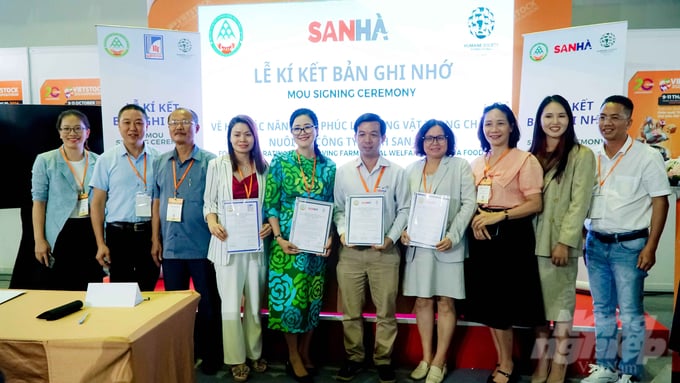
Cooperation signing program between HSI and the Vietnam Association of Farms and Agricultural Enterprises with partner businesses to promote and realize regulations on animal welfare. Photo: Le Binh.
When animal welfare-assured livestock models are implemented, the quality of flesh and eggs will increase, while the excessive use of antibiotics in agriculture will be reduced, resulting in greater economic efficiency. Dr. Ha Thuy Hanh emphasized that assurances of animal welfare are consistent with regional and international development.
Translated by Linh Linh

(VAN) After 5 years of implementation, the CAI initiative has helped coffee growers change their farming practices, moving toward responsible agriculture that meets global export standards.

(VAN) The primary prerequisite for the comprehensive and robust integration of Vietnam's livestock sector into the global value chain is the establishment of a disease control system.

(VAN) The results of national programs are essential for establishing a contemporary livestock sector that is well-equipped to meet the demands of both domestic and international markets, with robust biosafety standards.

(VAN) The UNESCO Global Geopark revalidation of Non nuoc Cao Bang and the transition to a two-tier administrative model are presently undergoing a pivotal moment in Cao Bang, the northernmost province of Vietnam.
/2025/06/13/5330-2-004539_953.jpg)
(VAN) Changing policy mindset and removing investment barriers are urgent requirements to open up new development space for enterprises in the agricultural sector.

(VAN) The areas include the restoration of five million hectares of marine ecosystems.

(VAN) Dr. Le Van Nguyen, Director of the Institute of E-Commerce Management (ECM), emphasizes the potential for green development through the cultivation of fruit trees, particularly in provinces such as Son La.